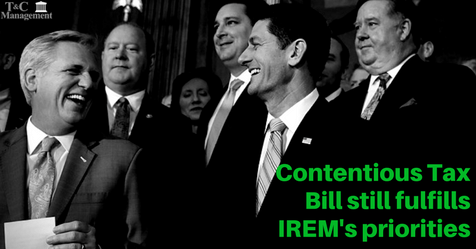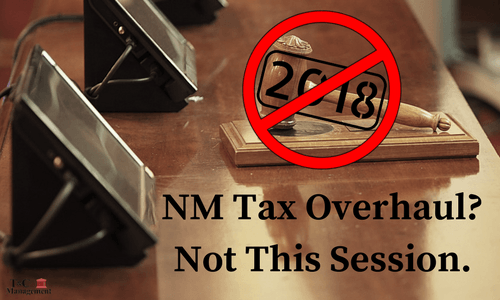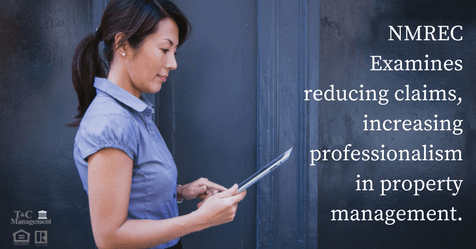BLOG

In Albuquerque, we are over 15,000 housing units short of the recommended housing supply needed, as quantified by The Urban Land Institute. Currently, there is less than one month’s supply of homes on the market for sale. Apartment inventory for sale is at an all-time low and occupancy is the highest rate it has been in many years at 96% as shown by COSTAR. Usually, we would see plenty of new housing being built. But we have a major impact on construction due to COVID-19, affecting labor and creating a shortage. Consequently, we are seeing higher lumber prices, a 40% increase over the past year, going from $600 per thousand board feet to over $1,000/ TBF. Furthermore, we will see over a 20% increase in housing costs, driving average housing prices to nearly $300,000, making it more difficult for first time home buyers, potentially denying them the opportunity altogether. Rental rates will also increase resulting in renting a 1,000 sq ft 2-bedroom apartment at $1,500 per month, requiring an income qualification of $58,000 per year. This has become the perfect storm – limited supply, raising costs, and a pandemic keeping people in place. All this is happening, and we have tenants unable or unwilling to pay rent. Undoubtedly, people have lost jobs, gotten sick, and have children at home being home schooled. They are out of options. They have also not read or understand the CDC’s ruling prohibiting evictions, thinking they do not have to pay rent when they are able to, as their pensions or incomes have not been affected. Owners are in a vice, tenants are not paying, and operational costs are high. In addition to tax costs and utilities going up, owners are faced with trying to make repairs with less or no income. Rental assistance is mired in red tape as tenants are not able to qualify, or write-off getting assistance altogether due to the cumbersome paperwork requirements. Owners are unable to liquidate or refinance due to large rental balances and affected income. It has been estimated that there is over 40 Billion dollars outstanding in rents and growing. On a local scale, our company has an 8% delinquency rate equivalent to $300,000+ in unpaid rents. The effects are already being felt by owners and residents alike – and now an onslaught of legislation assaulting real estate. All proposed bills are well-intentioned, but the unintended consequences will further cripple the real estate market by limiting supply and affecting the inflow of capital. The following are what is proposed. Full bills can be found on the state’s legislative website: HB19 - Real Estate Transfer Act, SB333 - Foreclosure and Housing Study SB338 - Domestic Violence Victim Release from Lease SB349 - Mortgage Relief Act, HB291 – Adding New Brackets to the Income Tax, HB 111 – Housing Discrimination There is a whole range of proposed legislation affecting real estate without any orchestrated approach. The affect will be catastrophic – increasing taxes, facilitating the removal of tenants while leaving owners worried that the removal could affect the standing rental contract, and a housing discrimination bill that affects all owners. HB 111 dissipates an owner’s right to decide who they want to rent to. Removal maybe considered discriminatory in some cases. Arguments are made that owners just evict tenants. Eviction costs 2 to 3 times the monthly rent when considering lost rent, unit repairs, and leasing costs. On a four-plex this could be 25% of a building’s revenue for the year. Eviction is the owner’s last resort. This perfect storm will result in less housing, not more, exacerbating the homelessness issue. We currently have over 2,000 homeless waiting for housing. Putting limits on collections, removal for non-conformity, and non-payment will force owners to increase requirements so only those with better credit scores will qualify for housing. Unintended consequences will affect all New Mexicans. Read the bills; contact your representatives to express your concerns.

To our T&C Residents and Owners, We understand the importance of the work we are doing with caring for and leasing the properties that are managed by us. With the health of our workers and tenants being of the utmost importance, we have decided to only perform emergency work orders during the spike in COVID-19 cases. What constitutes an emergency? Below is a list of what we consider emergencies and what we will be servicing from here on out until the COVID risk diminishes. Emergencies include: Fires Leaks (Water or Gas) No Power Fridge or Stove not working No Water Clogged/Leaking Toilets Break-Ins Broken Windows Heater Malfunctions (This emergency is contingent on the temperature being below 60 degrees). We know that there are other things that may require attention, but please bear with us and know that we are only making this change as a direct cause of the spike in COVID-19 cases here in New Mexico and around the country overall. If you have any additional questions, please feel free to reach out to your property manager directly or to our main office. Queridos Residentes de T&C, T&C Management entiende la importancia del trabajo que hacemos al mantener y rentar las propiedades que manejamos. La salud de nuestros empleados y residentes es lo mas importante para nosotros. Por eso es que haremos unos cambios operacionales durante este tiempo de alto riesgo del Corona Virus. Por algun tiempo, solamente atenderemos a las solocitudes de mantenimiento que se consideran emergencias. Que es lo que se considera una emergencia? Abajo encontrara una lista de las emergencias que atenderemos durante este tiempo de alto riesgo hasta que los casos del COVID-19 empiezen a bajar. Emergencias: Incendios Gotera de Agua o de Gas No Electricidad Refrigerador o Estufa que no funcione No tener agua Banos tapados Si alguien entra de fuerza a su unidad Ventanas quebradas El calentador no funciona (solo se considera emergencia si la temperatura baja de 60 grados). Sabemos que hay otras cosas que pueden requerir atencion, pero les pedimos paciencia durante estos cambios que estamos implementando en resultado al alto riesgo del virus en este momento. Si tiene alguna otra pregunta, no dude en comunicarse con su manegadora o con la oficina principal.

Information brought to you by the city councilman's office. New Mexico needs some good news and this week we brought it. For months, a small group of us including electeds and officials from the state, city and Mesa del Sol have been quietly meeting with Netflix officials about Albuquerque. Netflix wanted to create a new production facility and we wanted it in ABQ. Yesterday, we were finally able to share the news! Netflix is making Albuquerque it’s North American headquarters for film production and is investing another $1 billion (with a ‘B’) to do it. This deal, once approved the full City Council, adds an additional 300 acres and 10 new film stages along with a huge new office complex to Albuquerque Studios at Mesa del Sol where the company is already spending $1 billion over 10 years in a deal we launched in 2018. The new Netflix agreement will come before the City Council for approval on December 7th. Here’s how the deal works: In addition to the $1 billion already planned, Netflix agrees to spend an additional $1 billion in New Mexico over 10 years - with no less than $700 million spent right here in ABQ The expansion will include $150 - $500 million in new construction and employ more than 1,600 building trades workers to build it. Netflix is expected to spend $210 million with local businesses for goods and services. UNM estimates that the project will be “tax positive” (generating more in new taxes than it receives in incentives) in year one. To finance the project, the City will issue $500 million in Industrial Revenue Bonds. The City will retain title to the land and property until Netflix has paid off the bonds and met all benchmarks for employment and spending. The State is providing $17 million in LEDA funds to support new job creation. The City is providing an additional $7 million, including $6 million in infrastructure in-kind. UNM will receive an estimated $24 million through a deal with Land Commissioner Stephanie Garcia Richard because some of the expansion includes state trust land designated to benefit the university. So what happens next? Yesterday, tax districts at Mesa del Sol approved the first part of the plan to use Netflix tax revenue to pay for roads and other infrastructure. The City’s Development Commission gave their blessing as well. The project will come to the City Council for full approval on December 7th. This is a big deal for New Mexico, for Albuquerque and particularly for our Southeast ABQ neighborhoods where many film workers, vendors and businesses call home.

T & C Management has learned that a group of car thieves who had been known to spend time at a property we manage were arrested by the Albuquerque Police Department last week. The property is owned by Mr. Chuck Sheldon, CEO of T & C Management, and his video surveillance system was utilized by an APD detective to gather information and proof of the thieves’ activities. After their arrest, it was confirmed that one of the thieves was a resident of the property, so we are doubly glad to know that the other tenants will now be safer. We are very proud of this victory for apartment owners and managers in our fight against crime in the neighborhoods we pour so much time and concern into. T & C Management thanks the APD for their weeks-long investigation into these criminal acts that are a blight on Albuquerque’s great potential. Mr. Sheldon has installed video surveillance at a number of key properties largely in hopes that it would be useful to those policing Albuquerque’s especially difficult neighborhoods, and as a result keep his tenants and employees safer. Regarding this most recent use of footage by the APD, Mr. Sheldon says “This is why it is so important for owners like myself to install video surveillance and work closely with police. If, as a group, owners and managers participated in this manner, we could lift up these neighborhoods and improve quality of life for so many people.” As a very active participant in the multi-family industry both at home in Albuquerque and on a state- and nation-wide level, Mr. Sheldon has long been committed to improving Albuquerque neighborhoods. He has spent a great deal of time and effort improving buildings and living standards through various building rehabilitation projects. As a developer, Mr. Sheldon has a reputation for making sure his units are aesthetically beautiful and structurally excellent regardless of the neighborhood or surrounding buildings, and as a manager, he is determined to keep property valuable and livable. But with crime an increasing concern, good units aren’t enough to ensure good living standards for Albuquerque’s people and families. Video surveillance has also proven valuable in protecting property from vandalism, identifying other security holes such as back areas that need to be secured, and helping managers identify trouble-makers on properties. Overall, the systems, which have been active for less than a year, have proven invaluable. Mr. Sheldon added, “I want to encourage other owners in Albuquerque to take a serious look at the benefits of video surveillance. The money and time it takes to set up and maintain… we just got a whole group of car thieves off our property, we’ve protected our managers and tenants, made the detective’s job easier so they can move on to other crimes. To me, that’s worth all the time and hassle and then some.”

You found that perfect apartment! …But now it’s been awhile and it’s not so perfect anymore. Wrong location, wrong size, or just time for a change. On top of finding a new living space and renting or borrowing a truck, you signed a lease way back at the beginning and you have to figure out how to vacate without getting charged for extra rent or fees. No need to worry, though, it isn’t too complicated, just time-sensitive. Here’s a guide to how to move out of an apartment managed by T & C Management. Step 1: Send A 30 Day Notice The first thing you need to do is let T & C Management know you intend to leave the apartment 30 days before you actually move out. We need some basic information: Legal names of all residents on your lease Current address including unit number (i.e. the unit you are moving out of) The reason you are moving out The date you intend to be fully vacated A forwarding address (where we can send your security deposit and/or final statement) There are two ways to provide this information: Come to our office and ask for a “30 Day Notice of Intent to Vacate” form (sample pictured). You fill it out, leave it with us, and you’re set! Write a letter and send it to us in the mail or via email. Address it to T & C Management, state that the letter is your “notice of intent to vacate,” and the information listed above. Make sure it gets to us 30 days before your desired move-out date. Step 2: Bring Back Your Keys A sample of our “Returned Keys” form. You have not “moved out” until we receive your keys back – this is absolutely essential! The date you told us about in your 30 Day Notice is just an intended date. The date we consider you no longer occupying and paying rent is the day we get your keys. If you don’t get your keys to us on the move-out date you informed us of, we will continue charging rent for each day after, since we can’t rent the unit out to anyone else until we know you have actually left. The process for bringing back keys is as simple as it sounds: come to the office, hand us the keys, fill out a “Returned Keys” form (sample pictured) and you’re done! Step 3: Final Statement You will receive a final statement and your security deposit (minus any charges) at the forwarding address you provided. That will be the final communication between us. While we are always sad to see our tenants go, we wish you all the best as you move forward and into whatever new situations and locations await you!

For property managers, many concerns were abated when President Trump hastily signed the highly controversial new tax bill into law on December 22, 2017. As has been noted by others in the industry, the bill was and will continue to be contentious among individuals in both professional and private life. However, there were a few key issues which IREM considered priorities for property management companies, and results on those topics are likely to be applauded across the board. In a letter sent to IREM members, Director of Government Affairs Ted Thurn confirmed that the new tax bill fulfilled IREM’s biggest policy concerns. He wrote: “The conference committee bill preserves 1031 like kind exchange for real estate, but eliminates the like kind exchange for personal property. Carried interest has been retained, however a three-year hold period is required to qualify.” Additionally, the state tax deduction was capped at $10,000 generally, except for state taxes paid on investment property. The corporate tax rate was reduced to 21% from 36%. And notably, the cap on the mortgage interest deduction was reduced 25% from $1,000,000 to $750,000, but this only applies to new loans, so all mortgages already held will remain at the $1,000,000 cap. While I personally have multiple concerns about this new tax bill for both businesses and individuals, it is important to note that these particular changes and preservations were hard won by organizations such as IREM, and will help the property management and investment property industries in the coming years. Exactly how this new tax structure will affect our overall picture remains to be seen, but myself and IREM will continue watching and doing our best to predict appropriate actions moving forward. In the meantime, we must continue to work for the betterment of the entire economy and all individuals, using the boons this bill has provided to improve the lives of our tenants, employees, and the industry at large. By Chuck Sheldon, MBA President, CEO, CCIM, CPM, of T & C Management, LLC President Pro Tem, AANM President Elect, IREM

Rewriting and simplifying the tax code in New Mexico has been on the agenda of state legislators for years. For businesses in particular, the gross receipts tax laws are onerous and in desperate need of an overhaul. But yet again, we have come through another year without a successful tax bill, and according to an article by Bruce Krasnow recently published in the Santa Fe New Mexican, we should not expect one in 2018 either. As we enter an election year, Democrat legislators are unlikely to pass any tax bill which Governor Susana Martinez could claim as a victory – which at this point means any tax bill at all. However, neither is Governor Martinez willing to bend on passing tax reforms, since she refuses to do anything to the tax code without an omnibus bill. Bruce Krasnow writes: “The lack of a comprehensive fix to the state’s jumbled tax policy has put efforts to amend specific measures on hold. Smaller or stand-alone bills to charge the gross receipts tax on out-of-state internet sales, or tax nonprofit hospitals have been vetoed by Martinez. She has said she will not sign stand-alone tax bills into law without comprehensive changes.” Representative Jason Harper (R – District 57) has a comprehensive tax reform bill which failed to move forward in 2017, but which he wishes he could put forward in the coming session. Harper said the governor’s support has now become a detriment as she enters her final year in office. “I’m still pursuing reform, but I’m not naive,” Harper said. He said he plans to introduce what he calls “tax-reform junior,” which will focus on a few areas of the tax law. But according to Harper it won’t provide the benefits of lowering the overall gross receipts tax rate, which has been a detriment to business growth and economic development. Harper is still working with colleagues to identify the key elements of a streamlined bill, but says it has not yet been drafted. A spokesman for the governor said both Wirth and House Speaker Brian Egolf, D-Santa Fe, said they would support a broader tax reform effort during a regular session after completion of the study.” Impact on New Mexico Businesses The present gross receipts tax system is a thorn in the side of New Mexico business. While legislators argue about its impact on out-of-state purchases and what to do with the money once it is in the government’s hands, smaller businesses that largely operate within New Mexico are left with accounting and cash-flow troubles. Troubles that are unnecessary and costly, reducing opportunities for growth. The political maneuvering happening around this issue hurts businesses at a time when we have great opportunity for growth. The recession is over. The economy is picking up speed. Governor Martinez and the legislators on the Revenue Stabilization and Tax Policy Committee need to remember that business does not halt for politics, and small business owners like myself are still losing time and spending power. By Chuck Sheldon, MBA President, CEO, CCIM, CPM, of T & C Management, LLC President Pro Tem, AANM President Elect, IREM

The New Mexico Real Estate Commission (NMREC) has determined that Residential Property Managers are the cause of far too many claims and general harm caused to the public. These claims come from unprofessional managers and range from poor service to fraud, theft and other illegal acts. These actions have caused harm to the general public ranging from a few hundred dollars to hundreds of thousands of dollars. As a result they have formed a Property Management Committee to investigate how to reduce claims and increase professionalism in the residential management business. As an experienced and longstanding professional management company in New Mexico, T & C Management has been attending the committee meetings so as to understand and perhaps collaborate on a solution moving forward. There are several items being considered by the NMREC that would be helpful in limiting the claims and increasing the professionalism of residential property managers; Create an ombudsman program (e.g. GAAR) for complaints and have this program attempt to resolve complaints before they reach the NMREC. This would resolve many of the lesser complaints such as poor customer service and misunderstandings, etc., allowing the NMREC to have time to address the more serious ones. Expand the NMREC rules to state what activities unlicensed residential property management assistants are and are not allowed to perform. This would be similar to what already exists in the sales arena. Requirements to enter this business are fairly simple, and we do not believe they need to be onerous. Forms, rules, and contracts are standardized such that an intensive education and license is simply not needed for someone such as a leasing representative or someone who is assisting the responsible person / qualifying broker in residential management. Add a requirement for property managers to be bonded. This would be done with the intention of covering loss / general harm to the public. Bonds are inexpensive and and would parallel the required E & O Insurance already in place for licensed professionals. Unfortunately, there is never coverage for fraud, theft or illegal acts by professionals, licensed or not. Mandate education in the property management field. We believe that anyone working in this business should, at a minimum, be required to attend classes on the Owner Tenant Relations Act, Fair Housing, and NMREC ethics and rules for property managers. These classes would provide sufficient, overall education on the basic laws governing this business. In addition, brokers / qualifying brokers should be able to get CE credits on credentialing programs and classes which increase the professionalism in this field. Broker in charge. The way the NMREC rules are written place an emphasis on the responsible person. This term equates to the licensed professional in charge of that sales or property management activity, i.e. the qualifying broker or associate broker. It would be ideal for Property Management Brokers in the residential area to have specific training and / or credentials in directing and managing such activity. While this is not an all inclusive list, it’s good to see the NMREC agenda continuing to address the needs of the greater public. If you are an owner looking for a residential manager, or a member of the public looking for a rental, make sure you chose a manager and/or company that’s professional, trained in residential management, has a longstanding history of success in this business, and the qualifying broker is an active and functioning member of the company.


